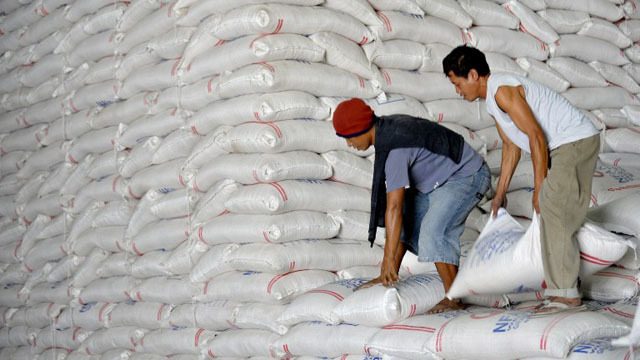SUMMARY
This is AI generated summarization, which may have errors. For context, always refer to the full article.

MANILA, Philippines (UPDATED) – From 2.7% in December, inflation went down to 2.4% in January, aligned with the government target of 3% for 2015, plus or minus 1 percentage point.
The National Economic and Development Authority (NEDA) reported on Thursday, February 5, that sufficient supply of key food items, plus lower petroleum prices and electricity rates, pulled down inflation in January.
NEDA Director-General Arsenio Balisacan said the lower inflation out-turn in January bodes well for consumption growth. It is aligned with market expectations given the consensus forecast of 2.4% for the same period.
Similarly, core inflation, which excludes certain volatile food and energy items to better capture underlying price pressures, fell marginally to 2.2% in January from 2.3% in the previous month, Bangko Sentral ng Pilipinas (BSP) said.
On a month-on-month seasonally-adjusted basis, inflation increased to 0.3% in January after declining by 0.1% in December.
Food inflation eases
Balisacan noted that the absence of new major economic and weather shocks kept food inflation at its manageable level for the first month of 2015.
The lifting of the expanded truck ban in September 2014 also helped normalize the supply chain of other food products.
“So these may have also contributed to the continued easing of inflation,” Balisacan added.
Rice prices account for 38% of total food inflation. While still elevated, the rate of price increase was slower because of more favorable supply conditions, thus it continued to ease year-on-year.
Balisacan noted that total rice stock inventory continues to register a double-digit, year-on-year growth as of December 2014, this is in contrast to the decline in inventory recorded before November 2014.
Also, the favorable outlook on the production of agricultural commodities should further ease local price pressures in the coming months, as rice harvest from December 2014 to January 2015 in some provinces is seen to boost production in the first quarter of this year.
The National Food Authority will also import an additional 600,000 tons of rice in the coming months to boost stocks.
Lower oil prices, electricity rates
The significant rollbacks in the domestic pump prices of unleaded diesel, gasoline, kerosene, and Liquefied Petroleum Gas (LPG) were still recorded in January 2015.
Since the 4th quarter of 2014, international oil prices have slid remarkably due to rising global oil supply and slow oil demand due to the weak global recovery.
“The continuing decline in international oil prices is a positive development for the country considering our import dependence in oil,” Balisacan said.
The decline of electricity rates due to lower generation charges last month, improved power plant availability and lower fuel cost, thus Manila Electric Company (Meralco) charges were down anew by 17% year-on-year or by P0.22 ($0.005) per kilowatt hour (kWh).
Inflation manageable
With the latest inflation figure, Balisacan stressed that, overall, policies remain supportive of a manageable rate of inflation.
The January inflation reading was also within the BSP range forecast of 1.8% to 2.7% for the month.
For his part, BSP governor Amando M. Tetangco, Jr. said that the latest inflation reading is in line with the BSP’s assessment of a manageable inflation environment over the policy horizon.
While there is the expected monetary policy adjustments in the United States and the general concerns about the sustainability of growth in emerging economies, the Philippine peso is expected to remain relatively stable. Thisnis due to the country’s strong external position that contribute to stable domestic prices going forward, Balisacan said.
Despite the optimistic outlook, Balisacan said the government is aware that there are still risks to a manageable inflation rate.
The possibility of El Niño occurrence in the first quarter of 2015 and power woes come summer remain a concern and must be holistically addressed, Balisacan added.
Inflation remained within target in 2014, hitting a full-year average of 4.1% – the 6th consecutive year that it remained within the official target range beginning 2009. – Rappler.com
US$1 = P44.13
Add a comment
How does this make you feel?
There are no comments yet. Add your comment to start the conversation.